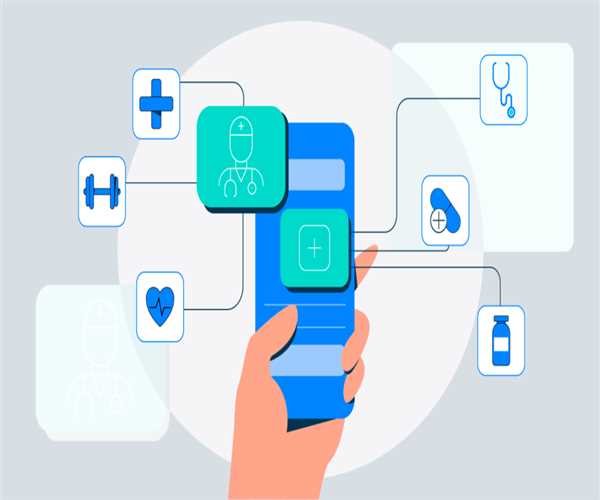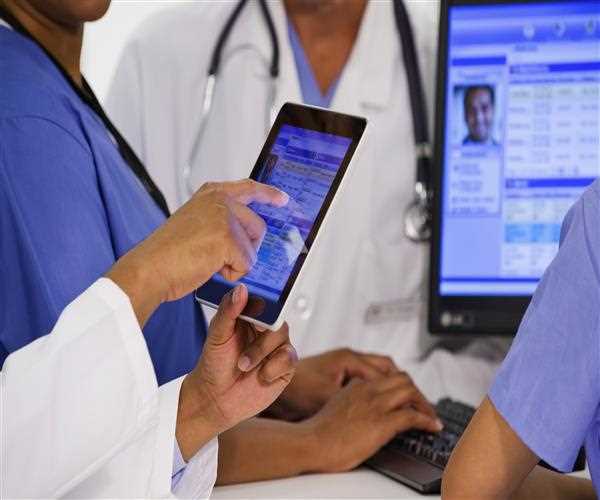
27-Jul-2023 , Updated on 7/27/2023 6:52:06 AM
Mobile health apps and their contribution to healthcare
Highlights
- Mobile health apps, also known as mHealth apps, are applications designed for smartphones and tablets to provide health-related services and information.
- These apps cover a wide range of functions, including fitness tracking, remote patient monitoring, medication reminders, mental health support, diet tracking, and more.
- Accessibility and convenience- Mobile health apps allow users to access health information and services anytime and anywhere, empowering individuals to take control of their health.
- Patient engagement- These apps can engage patients in their healthcare by providing personalized insights, interactive features, and tracking tools that promote healthier lifestyles.
- Chronic disease management- Mobile health apps are valuable tools for managing chronic conditions, enabling patients to monitor symptoms, track medication adherence, and communicate with healthcare providers remotely.
- Remote monitoring and telemedicine- These apps facilitate remote monitoring of patients' vital signs and health data, allowing healthcare professionals to provide virtual consultations and improve patient outcomes
The rapid advancement of technology has revolutionized various aspects of our lives, and healthcare is no exception. Mobile health apps, commonly known as mHealth apps, have emerged as a game-changer in the healthcare industry. These applications are designed to be accessed through smartphones and other mobile devices, empowering individuals to take charge of their health and well-being like never before. This view delves into the role of mobile health apps and their significant contributions to modern healthcare, examining their benefits, challenges, and potential future impact.
The Rise of Mobile Health Apps
Mobile health apps have gained immense popularity over the last decade due to their accessibility, convenience, and user-friendly nature. With millions of people worldwide owning smartphones, the potential for reaching and engaging patients is vast. These apps cater to various healthcare needs, including fitness tracking, medication reminders, chronic disease management, mental health support, and general wellness promotion. They have bridged the gap between patients and healthcare providers, offering real-time health monitoring and personalized interventions.
Empowering Patients and Improving Engagement
One of the primary contributions of mobile health apps is empowering patients to actively participate in their healthcare management. Through these applications, individuals can monitor vital health parameters, track symptoms, record lifestyle habits, and manage chronic conditions effectively. By enabling patients to take an active role in their health, mobile health apps foster a sense of responsibility, leading to better health outcomes and reduced healthcare costs. Moreover, the interactive and user-friendly interfaces of these apps enhance patient engagement, encouraging consistent usage and adherence to treatment plans.
Remote Patient Monitoring and Telemedicine
Mobile health apps play a pivotal role in revolutionizing remote patient monitoring and telemedicine. For individuals with chronic illnesses or those who live in remote areas, regular visits to healthcare facilities can be challenging. However, mobile health apps facilitate continuous monitoring and data collection, allowing healthcare providers to remotely assess patients' health status and intervene promptly when necessary. Additionally, telemedicine features embedded in some apps enable virtual consultations, connecting patients with healthcare professionals in real-time, improving accessibility, and reducing healthcare disparities.
Personalized Healthcare and Big Data
The wealth of data collected through mobile health apps has opened new avenues for personalized healthcare. By analyzing user-generated data, these apps can offer tailored recommendations and interventions, adapting to each individual's unique health needs. Machine learning and artificial intelligence (AI) algorithms applied to the vast amount of data collected through these apps provide deeper insights into disease patterns, treatment responses, and population health trends. This information can then be used to improve medical research, inform public health policies, and enhance the overall quality of healthcare services.

Health Promotion and Disease Prevention
Prevention is an essential aspect of healthcare, and mobile health apps have emerged as potent tools for health promotion and disease prevention. These apps often include features such as fitness tracking, healthy eating guidance, stress management, and smoking cessation support. By encouraging healthy behaviors and empowering users to set and achieve wellness goals, mobile health apps can reduce the incidence of chronic diseases and promote healthier lifestyles within communities.
Mental Health Support
The growing awareness of mental health issues has led to the development of mobile health apps focused on mental well-being. These apps provide various features like mood tracking, mindfulness exercises, cognitive-behavioral therapy techniques, and access to online support groups. Mental health apps have proven to be effective in providing accessible and confidential support, reducing the stigma associated with seeking help, and improving mental health outcomes for many individuals.
Challenges and Concerns
While mobile health apps offer tremendous potential, they also come with challenges and concerns. One significant concern is the lack of regulation and oversight, as the app market is flooded with various offerings of varying quality and reliability. Ensuring the privacy and security of user data is another critical challenge, as these apps often deal with sensitive health information. Moreover, issues like app usability, interoperability with electronic health records, and user adherence must be addressed for optimal app efficacy and user satisfaction.
Future Prospects
Mobile health apps have already made a substantial contribution to healthcare, but their potential impact continues to grow. As technology advances, we can expect more sophisticated apps integrating cutting-edge technologies like wearable devices, AI-driven diagnostics, and real-time monitoring of vital signs. Furthermore, collaborations between healthcare institutions, tech companies, and regulatory bodies will foster a safer and more standardized mobile health app ecosystem.
In conclusion, mobile health apps have emerged as powerful tools that empower patients, improve healthcare access, and promote better health outcomes. Their potential to revolutionize healthcare delivery and enhance preventive care makes them a crucial component of modern healthcare. However, continuous efforts to address challenges, ensure data security, and promote evidence-based development are essential to realizing the full potential of mobile health apps in transforming the healthcare landscape. As technology progresses, the integration of mobile health apps into healthcare systems will undoubtedly bring us closer to a healthier and more connected world.

SEO and Content Writer
I am Drishan vig. I used to write blogs, articles, and stories in a way that entices the audience. I assure you that consistency, style, and tone must be met while writing the content. Working with the clients like bfc, varthana, ITC hotels, indusind, mumpa, mollydolly etc. has made me realized that writing content is not enough but doing seo is the first thing for it.
Join Our Newsletter
Subscribe to our newsletter to receive emails about new views posts, releases and updates.
Copyright 2010 - 2026 MindStick Software Pvt. Ltd. All Rights Reserved Privacy Policy | Terms & Conditions | Cookie Policy